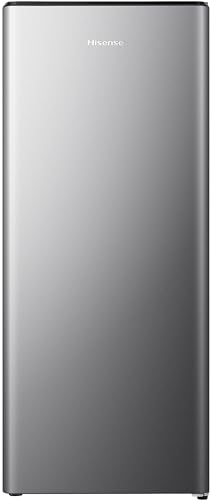Responsible For A Fridges Budget? Twelve Top Ways To Spend Your Money
Understanding Refrigerators: A Comprehensive Guide
Refrigerators, often referred to as fridges, are important appliances in modern households and industrial facilities. They play an important function in preserving food and drinks, ensuring they remain fresh and safe for intake. For many years, developments in innovation have changed the modest fridge into a sophisticated appliance that comes geared up with different functions and functionalities. In this post, we will check out the various types of refrigerators, crucial functions to think about when purchasing one, and upkeep suggestions to extend its life-span.
Kinds of Refrigerators
When it pertains to fridges, there is a plethora of options readily available in the market. Each type caters to various needs and preferences, making it essential for customers to understand their characteristics. Below is a summary of the main types of refrigerators:
Type
Description
Pros
Cons
Top-Freezer
A conventional design with a freezer compartment above the refrigerator area.
Cost-efficient, familiar style
Restricted storage space for fresh food
Bottom-Freezer
Functions a freezer compartment located at the bottom for easier access to fresh food.
Ergonomic design, more fresh food area
Freezer might need flexing to access
Side-by-Side
Split vertically, with the freezer on one side and the refrigerator on the other.
Practical access to products, ample storage area
Narrow storage bins
French Door
Combines a bottom freezer with double doors for the refrigerator section, offering flexibility.
Elegant style, simple access to foods
Greater price point
Compact Fridge
Smaller units created for limited spaces such as dorm spaces or workplaces.
Space-efficient, portable
Minimal storage capability
Smart Fridge
Geared up with Wi-Fi connection and touch screens, making it possible for users to manage groceries digitally.
State-of-the-art functions, energy-efficient
Expensive and might need updates
Key Features to Consider
When buying a refrigerator, it's necessary to evaluate certain features to guarantee it fulfills your needs. Here are key elements to think about:
Size and Capacity
- Make sure the fridge fits your kitchen area area.
- Think about the overall capacity based on your family requires.
Energy Efficiency
- Try To Find ENERGY STAR ratings to make sure energy performance, which can minimize electrical energy expenses.
Cooling Technology
- Inspect if the fridge uses conventional cooling, double cooling, or advanced technologies like inverter compressors for better efficiency.
Storage Options
- Evaluate shelving versatilities, crisper drawers, and adjustable compartments for effective storage and organization.
Finish and Design
- Choose a surface (stainless steel, matte, and so on) that matches your kitchen décor. Remember to think about the overall design, whether smooth or standard.
Smart Features
- Consider clever fridges if you desire features like temperature level control via an app, inventory tracking, and notifications when the door is exposed.
Maintenance Tips for Refrigerators
Proper upkeep can significantly extend the life of a refrigerator. Here's a list of essential upkeep practices:
Regular Cleaning: Keep the interior clean and totally free of spills and ended products. Month-to-month cleaning is suggested.
Check Temperature Settings: Ensure the refrigerator is set between 35 ° F and 38 ° F, while the freezer must be at 0 ° F to keep food security.
Clean Condenser Coils: Dust and debris can accumulate on the coils, reducing performance. Cleaning them every six months is suggested.
Inspect Door Seals: Regularly examine the door gaskets for wear and tear. An excellent seal is vital for keeping temperature.
Thawing: In older models, thaw the freezer frequently to prevent ice buildup. Fridges Online featured auto-defrost features.
Keep Vents Unobstructed: Ensure air flow is not blocked by products, which can restrain cooling effectiveness.
Monitor Food Storage: Properly shop foods and avoid straining the fridge, which can restrict air flow.
Regularly Asked Questions (FAQs)
How long do refrigerators usually last?
- Most refrigerators last in between 10 to 15 years, depending on the design and maintenance.
What can I do to keep my fridge running effectively?
- Regular cleaning, inspecting temperature settings, and maintaining correct ventilation can boost performance.
Is a wise fridge worth the investment?
- If you often cook, amuse, or require sophisticated features such as remote temperature level control and inventory tracking, the financial investment might be worthwhile.
Can my refrigerator cause high electrical energy expenses?
- Inefficient models, bad upkeep, or leaving the door open can lead to increased electricity usage.
What's the distinction between a top-freezer and a bottom-freezer model?
- A top-freezer fridge has a freezer section above the fridge, while a bottom-freezer model has a freezer drawer at the bottom for ease of access to fresh food.
Refrigerators are vital in modern-day kitchen areas, serving not just as storage for perishables but also showing advancements in technology and convenience. With the myriad options available, understanding the types, features, and upkeep can empower customers to make informed choices. Appropriate care can guarantee that a fridge stays efficient and practical for several years, eventually improving the total food storage experience in the home. Whether choosing a trendy French door model or a compact fridge for a little apartment or condo, consumers today are geared up with the knowledge to select the right home appliance for their requirements.
